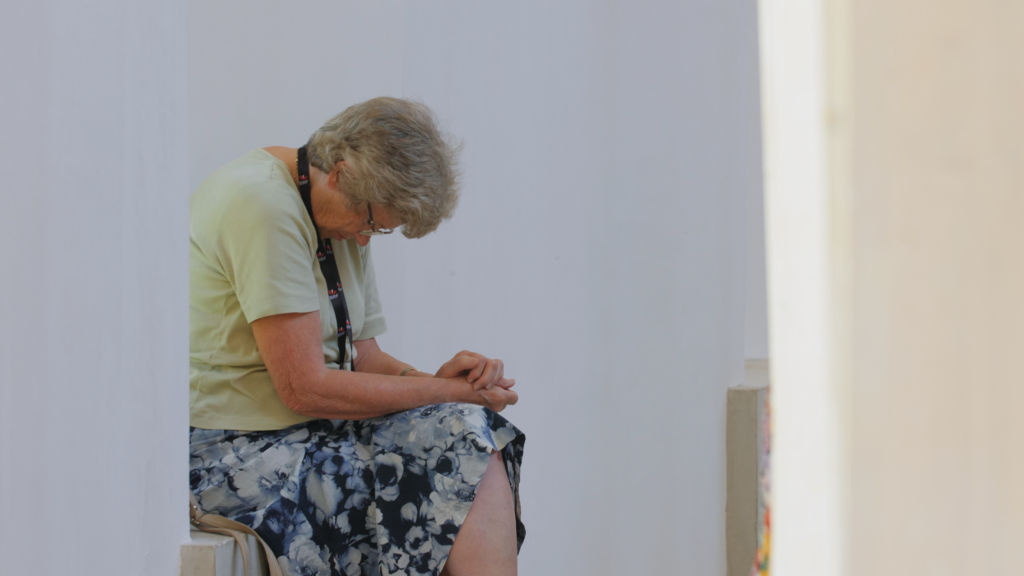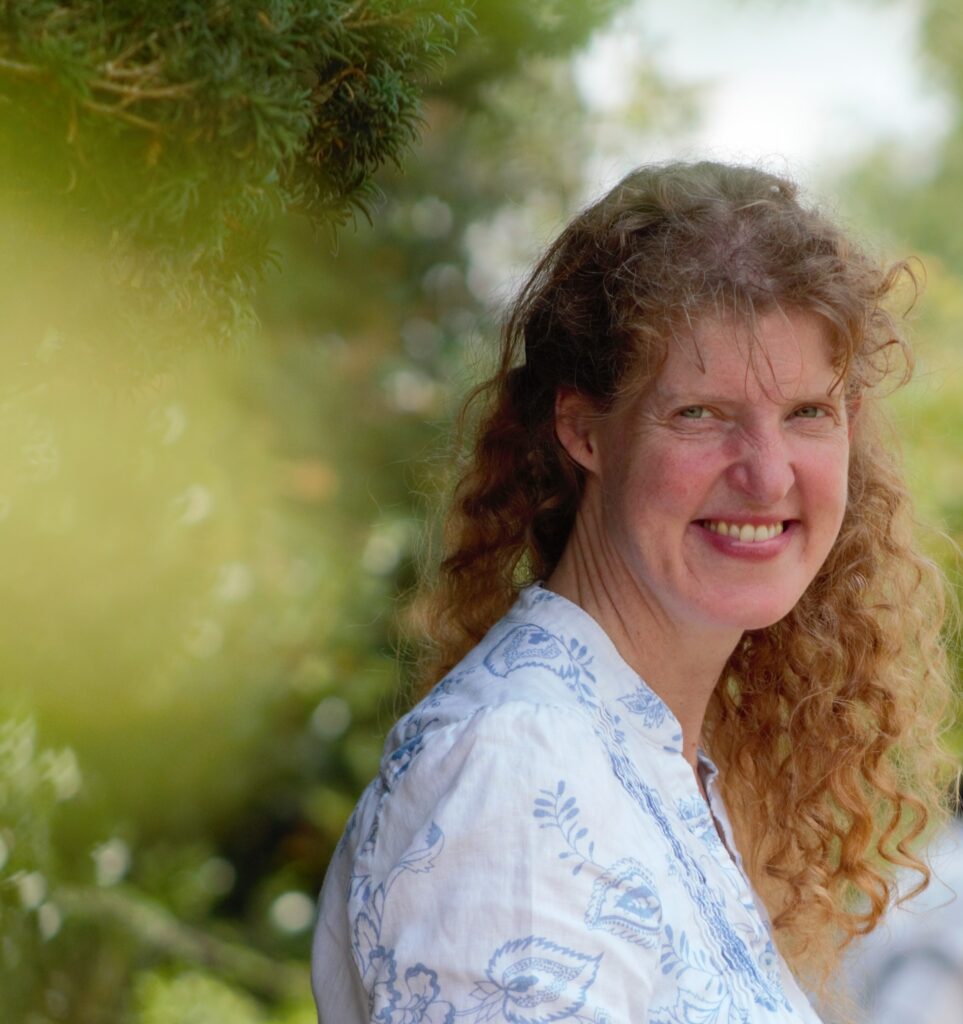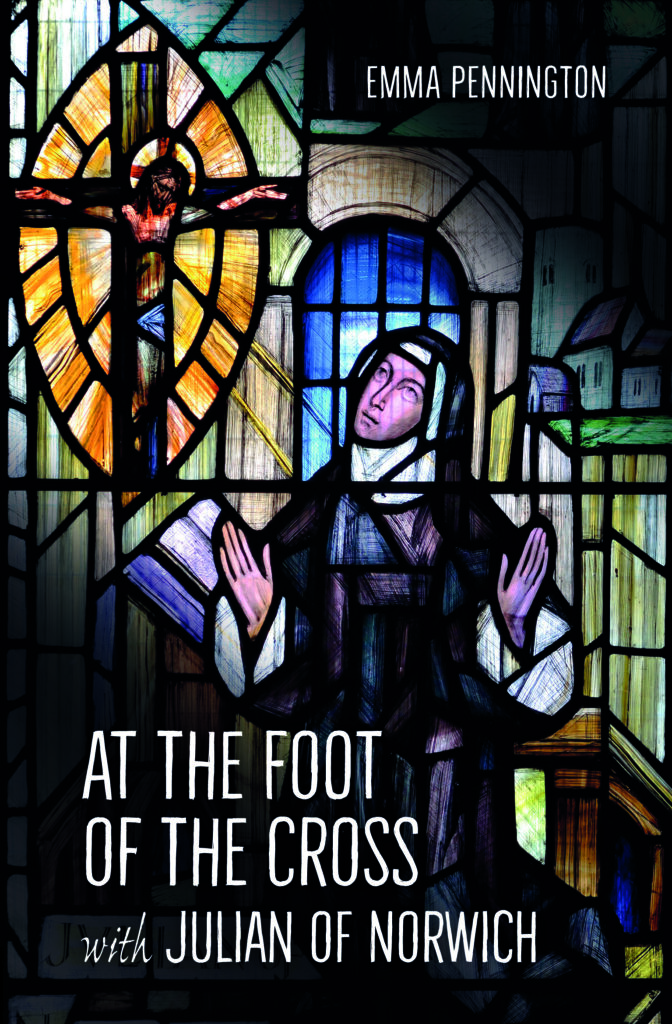In the second of our articles based on sessions from the 2022 Festival of Prayer, Emma Pennington, canon missioner at Canterbury Cathedral, makes mystical prayer accessible to all.
7 August 2022
Mystical prayer: the way of the heart
Emma Pennington has been involved in the Festival of Prayer from its outset. She spoke on mystical prayer at the inaugural festival and returned to the theme at the recent tenth-anniversary event, on prayer and personality, held at Rippon College, Cuddesdon. This week’s article is an edited extract from her talk.

At the heart of prayer: relationship
Dom John Chapman, in his spiritual letters, speaks of the importance of being authentic in our prayer; being who we actually are. There’s a great difference between learning prayers and techniques about prayer and what it means to pray in our own prayerfulness. At the heart of prayer – what prayer is essentially about – is relationship: our relationship with God and his relationship with us. This relationship is unique and will be shaped by our personality, our experience and our context. But it’s an organic relationship which can change over time. It’s helpful to be aware of what we are naturally drawn to in forms of prayer, but it’s also important to be open to new ways of praying, including those we may not initially feel comfortable with, but which can, in the long run, actually enliven our prayer life and deepen our relationship with God.
Ten years ago, I gave my very first workshop at this festival, on the theme of mystical prayer. In the feedback afterwards a few people said it was very interesting, but this form of prayer was just a bit too niche and not for them.
‘It’s important to be open to new ways of praying, including those we may not initially feel comfortable with.’
Of course, in the context of personality and prayer, that’s a fair comment: it may not float your boat. But today, ten years later, I’d like to come back and argue, persuade you even, that mystical prayer is open to everyone, regardless of our personality, because at its centre, at its heart, is that deeply personal relationship with God, which lies at the heart of all prayer.
Direct, personal experience of God
Mystical prayer is primarily concerned with forming our relationship with God through direct personal experience of him. This may be through a medium, such as an image, music, scripture, nature or liturgy – hundreds of different ways – but at the core is the unmediated form of experience in which mystical prayer takes us beyond the medium to the place of direct encounter with God.
‘Mystical prayer takes us beyond the medium to the place of direct encounter with God.’
To discover what this experience is like, we can turn to the writings of the mystics – people like the 14th-century English hermit Richard Rolle, Julian of Norwich, Teresa of Avila and the author of The Cloud of Unknowing. Their experiences are widely different, unique to each of them as individuals, but there are common threads in their experiences that we might compare with our own.
In all these writers*, it’s clear that this deep personal encounter with God cannot be manufactured. It’s gifted by God, but each writer, in their own way, gives us ways and means for tuning our heart and our soul to receive this grace, be it through an arrow of love, as with Rolle, or a liturgical sacramental moment as when Julian of Norwich receives the last rites.

Compelled to share their experience
Each of these mystics, and others, like the 20th-century Trappist monk Thomas Merton, are compelled by the power of the experiences they receive in contemplative prayer to share them with others through their writing, as in a kind of apostolic mandate. Julian is particular about this when she writes, ‘I’ve written my text. It has begun, but it is not yet performed.’ In other words, she has written the text which will enable the space of encounter for her readers with God. But only when we read it and inhabit that space, will it be ‘performed’, and we ourselves will stand in that place of encounter, which she wants her text to create for us.
Richard Rolle not only speaks of his experiences, but he also continues the tradition of what’s known as affective literature, where the author seeks to stir up the soul in love. This is perhaps best described and expressed in his passion meditations, where he seeks to arouse within the soul of his reader tears of compunction and the longing to know Christ better. He actually uses the way he writes – the images, the intensity, the depth of his expression – to try and stir that up within us.
‘These mystics are compelled by the power of the experiences they receive in contemplative prayer to share them with others through their writing.’
An important aspect of the writings of the mystics is how they encourage us, in our own way, to imaginatively engage in the words of scripture, so that the written word of scripture becomes an encounter with the living word of Christ and we’re drawn deeper into our relationship with God.
And so, as we come to the end of this exploration, I invite you in stillness to rest, to relax and ponder your personal relationship with Christ, to reflect on the ways and the means in which you find this encounter and find this relationship deepened. What would you like to change about your life of prayer? To enable you to have more space for that encounter and personal relationship with Christ, what are the blockages in your prayer life? What is God calling you to do and to be so that his fire of love may be ignited more fully in your hearts until you become all flame?
‘What is God calling you to do and to be so that his fire of love may be ignited more fully in your hearts until you become all flame?’
*All their writings are easily available in accessible, modern translations.

Formerly vicar of All Saints, Cuddesdon, Emma Pennington is now canon missioner of Canterbury Cathedral. Emma has a passion for prayer and spirituality and welcomes the opportunity to encourage others to deepen their contemplative life of prayer. She has given talks and led retreats and quiet days both in the UK and abroad, and also tutored and lectured extensively on Christian spirituality, especially at the University of Oxford, where she completed her doctoral research on Julian of Norwich. She wrote At the Foot of the Cross with Julian Norwich for BRF, published in 2020.

At the Foot of the Cross with Julian of Norwich
A prayerful resource that enables you to linger on the wonder of the cross.
‘All shall be well, and all shall be well, and all manner of thing shall be well.’ This quotation may be all that many people know of Julian of Norwich, an anchoress from the 14th century. This book seeks to bring to a popular readership a devotional engagement with Julian’s work.
Find out more and order below.

Parenting for Faith
The Parenting for Faith team produces an amazing range of resources in addition to the renowned eight-session Parenting for Faith course.
Particularly topical is this podcast on keeping the kids occupied when travelling: Holidays: trapped in a tin can.
You might also find one of four new downloadable resources – Starting or changing school – helpful. You can download these ‘postcards’ to use with your family or church. Just print them out and stick them on the fridge or save them on to your phone, to refer to next time a question or topic pops up.
